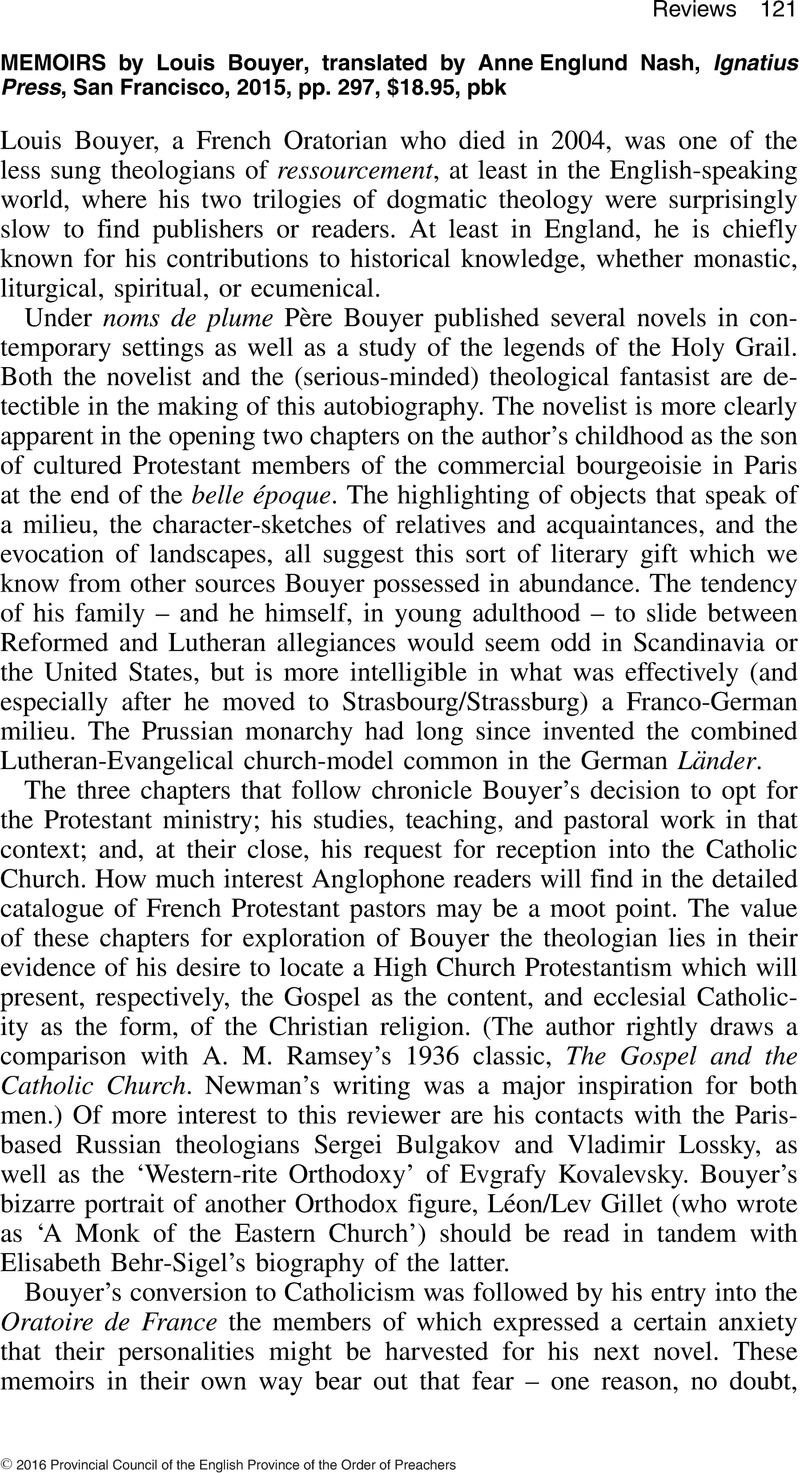No CrossRef data available.
Article contents
Memoirs by Louis Bouyer, translated by Anne Englund Nash, Ignatius Press, San Francisco, 2015, pp. 297, $18.95, pbk
Review products
Memoirs by Louis Bouyer, translated by Anne Englund Nash, Ignatius Press, San Francisco, 2015, pp. 297, $18.95, pbk
Published online by Cambridge University Press: 01 January 2024
Abstract
An abstract is not available for this content so a preview has been provided. Please use the Get access link above for information on how to access this content.

- Type
- Review
- Information
- Copyright
- Copyright © 2016 Provincial Council of the English Province of the Order of Preachers


